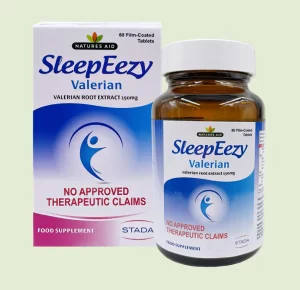Emerging studies reveal that specific habits—like incorporating omega-3 supplements, ensuring sufficient vitamin D levels, and committing to regular exercise—can markedly slow cellular aging. These practices not only promote a longer life but also boost healthspan, allowing you to remain active and free from illness for more years.
This article explores how these three key lifestyle choices influence the aging process and what you can do to integrate them into your daily routine.
The Science Behind Aging
Aging occurs at a cellular level, primarily due to oxidative stress, chronic inflammation, and telomere shortening.
- Oxidative stress happens when free radicals (unstable molecules) damage cells and DNA, accelerating aging.
- Chronic inflammation is linked to several age-related diseases like heart disease, arthritis, and Alzheimer’s.
- Telomeres, which protect chromosomes from deterioration, shorten over time. When they become too short, cells stop dividing and functioning properly.
The good news is that science-backed lifestyle choices can slow these processes and help you age better.
Omega-3 Fatty Acids: The Anti-Aging Nutrient
How Omega-3 Slows Aging
Omega-3 fatty acids, found in fatty fish and supplements, have powerful anti-inflammatory and cell-protecting properties. Studies show that omega-3s help:
- Reduce inflammation – Chronic inflammation accelerates aging. Omega-3s lower inflammation markers like C-reactive protein (CRP).
- Support heart health – Omega-3s help lower triglycerides, reduce blood pressure, and improve arterial function.
- Protect brain function – Regular intake is linked to lower risks of dementia, Alzheimer’s, and cognitive decline.
- Preserve telomeres – A groundbreaking study from Ohio State University found that omega-3 supplements slowed telomere shortening, which is directly linked to cellular aging.
Best Sources of Omega-3
- Fatty fish – Salmon, sardines, mackerel, and tuna are rich in EPA and DHA, the most beneficial forms of omega-3.
- Chia seeds and flaxseeds – Plant-based sources that contain ALA (which the body partially converts into EPA and DHA).
- Omega-3 supplements – Fish oil or algae-based supplements (for vegetarians) provide concentrated doses.
How Much Omega-3 Do You Need?
- General health – 250–500 mg EPA and DHA daily.
- Heart health – 1,000 mg per day.
- Cognitive and anti-aging benefits – Up to 2,000 mg per day (consult your doctor).
Vitamin D: The Longevity Vitamin
Why Vitamin D Is Crucial for Aging
Vitamin D plays a key role in immune function, bone health, and cellular protection. Studies show that adequate vitamin D levels are linked to longer life expectancy and a lower risk of chronic diseases.
How Vitamin D Slows Aging
- Boosts immune health – Reduces the risk of infections and autoimmune diseases.
- Protects bones and muscles – Prevents osteoporosis and frailty, reducing fall risks.
- Supports cardiovascular health – Low vitamin D is linked to high blood pressure and heart disease.
- May reduce cancer risk – Research suggests vitamin D helps regulate cell growth and prevent abnormal cell division.
How to Get Enough Vitamin D
- Sun exposure – 15–30 minutes of sunlight (depending on skin tone and location) helps your body produce vitamin D naturally.
- Food sources – Fatty fish, egg yolks, fortified dairy, and mushrooms.
- Supplements – Vitamin D3 (cholecalciferol) is the most effective form.
Recommended Daily Intake
- Adults under 50 – 600 IU (International Units) per day.
- Adults over 50 – 800–1,000 IU per day.
- Deficiency treatment – 2,000 IU or more (under medical supervision).
A simple blood test can determine if you’re deficient in vitamin D.
Exercise: The Ultimate Anti-Aging Habit
How Exercise Slows Aging
Regular physical activity is one of the most effective ways to extend both lifespan and healthspan. Exercise affects the body at a cellular level, improving mitochondrial function and reducing inflammation.
Key Benefits of Exercise for Longevity
- Protects the heart – Reduces heart disease risk by improving circulation and lowering cholesterol.
- Boosts brain function – Lowers Alzheimer’s risk by improving blood flow to the brain.
- Preserves muscle mass – Prevents sarcopenia (age-related muscle loss).
- Increases telomere length – A 2018 study in Preventive Medicine found that active individuals had longer telomeres, indicating slower biological aging.
- Enhances mood – Reduces stress and depression, which are linked to premature aging.
Best Types of Exercise for Anti-Aging
- Cardio (Aerobic Exercise) – Running, swimming, and cycling improve heart and lung function.
- Strength Training – Lifting weights or resistance exercises maintain muscle mass and bone density.
- Flexibility & Mobility Work – Yoga, stretching, and Pilates keep joints flexible and reduce injury risk.
- High-Intensity Interval Training (HIIT) – Boosts metabolism and improves cellular energy production.
- Daily Movement – Walking 7,000–10,000 steps per day is linked to a lower mortality rate.
How Much Exercise Is Ideal?
- Cardio – 150 minutes of moderate exercise or 75 minutes of intense exercise per week.
- Strength training – 2–3 times per week.
- Flexibility & mobility work – Daily stretching or yoga sessions.
Practical Tips to Implement These Lifestyle Changes
1. Plan Your Omega-3 Intake
- Eat fatty fish twice a week.
- Add flaxseeds or chia seeds to smoothies.
- Take an omega-3 supplement if needed.
2. Get More Vitamin D Naturally
- Spend time in the sun daily.
- Include vitamin D-rich foods in your diet.
- Get your levels tested and supplement if necessary.
3. Create an Exercise Routine
- Start with 30 minutes of activity most days.
- Mix cardio, strength, and flexibility workouts.
- Stay consistent by choosing activities you enjoy.
4. Track Your Progress
- Use a fitness app to monitor steps and workouts.
- Keep a food journal to track omega-3 and vitamin D intake.
- Set small, realistic health goals each month.
Small Changes, Big Impact on Aging
Aging well isn’t about avoiding the inevitable but optimizing how you age. By making conscious choices—taking omega-3s, maintaining healthy vitamin D levels, and exercising regularly—you can slow down cellular aging, prevent diseases, and improve your overall quality of life.
Start today. Small, consistent habits will pay off in the long run, keeping you strong, sharp, and full of energy for years to come.






Recent Comments